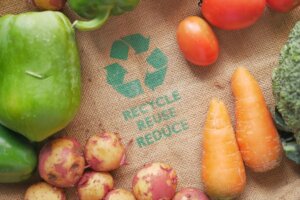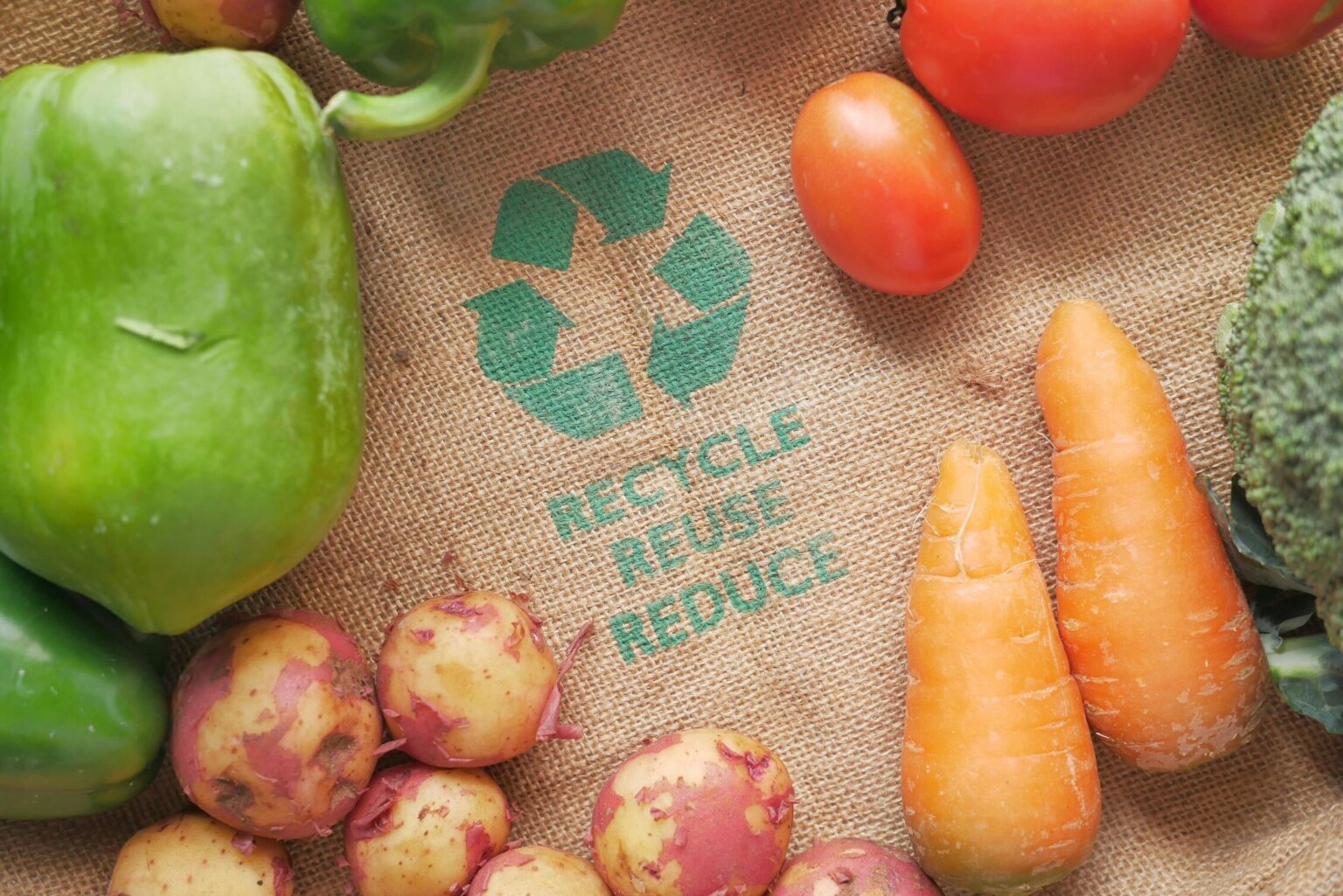Products are selected by our editors, we may earn commission from links on this page.
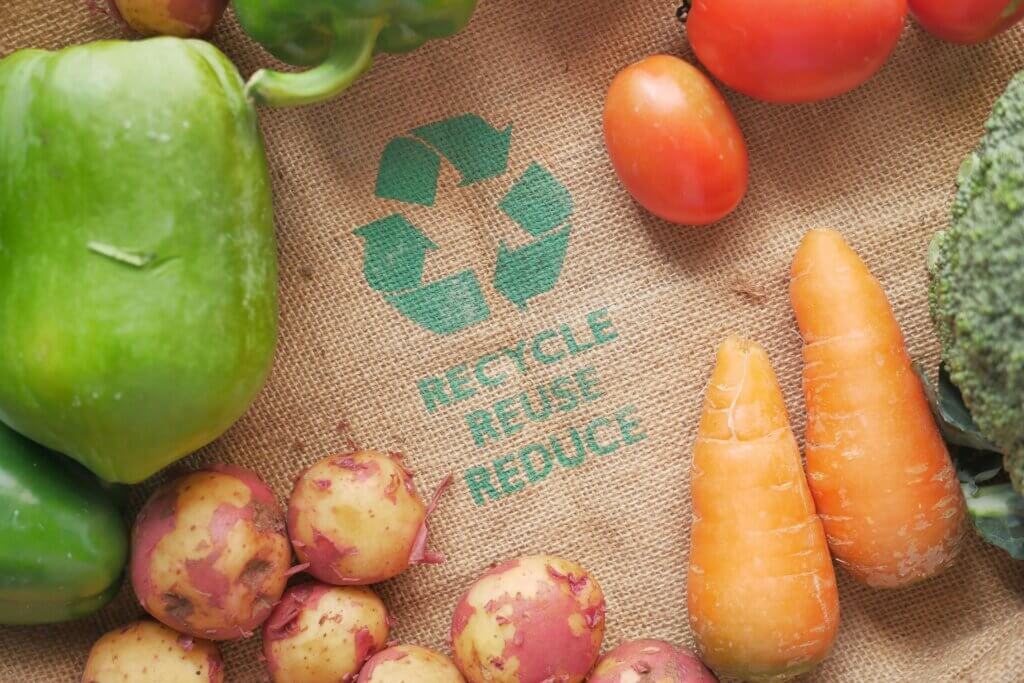
Whether we like it or not, the world’s waste problem is getting worse. From fast fashion to delivery packaging, we’re surrounded by excess, and often feel like we have little control. But even small, mindful choices can go a long way. Starting with our kitchens, we can gradually adopt low-waste habits that are both eco-friendly and cost-effective.
If you’re thinking of lowering your waste production at home but don’t know where to start, here are 10 kitchen hacks you can try. In time, you’ll not only cut down on waste but also notice the difference it makes to your grocery bill and lifestyle.
Plan Your Meals, Reduce the Waste
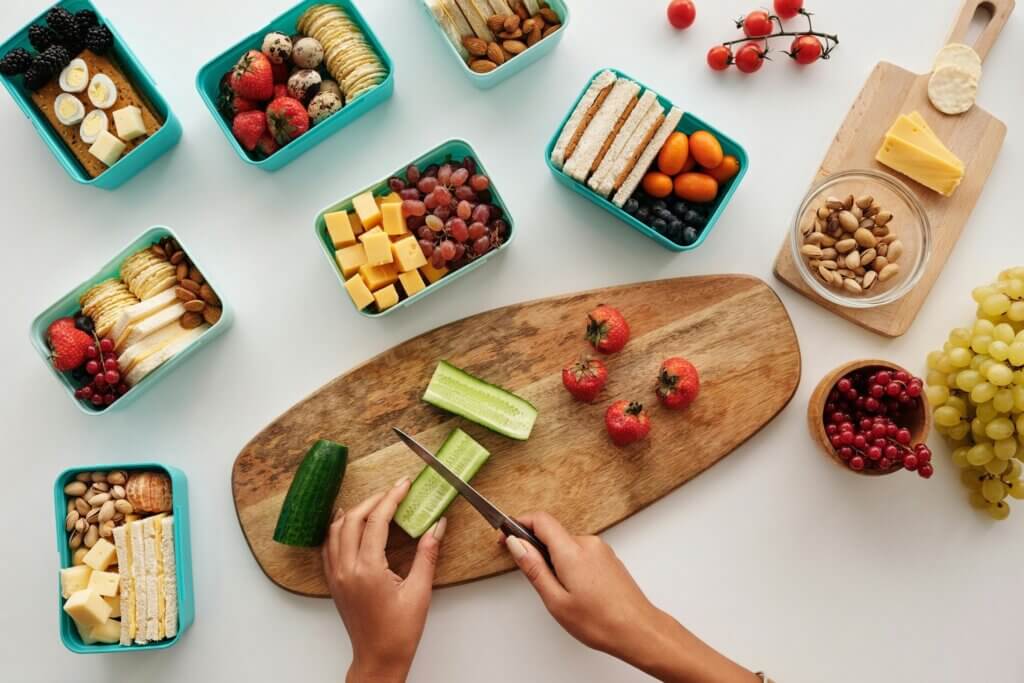
One of the easiest ways to lower kitchen waste is by planning your meals ahead of time. Creating a weekly menu helps you buy only what you need, reducing impulse purchases that often end up spoiling. It also gives structure to your week and helps minimize takeout temptations. Even simple lists before grocery runs can keep you focused. It’s a low-effort habit that adds up to a big impact over time.
Bring Your Own Reusable Shopping Bags
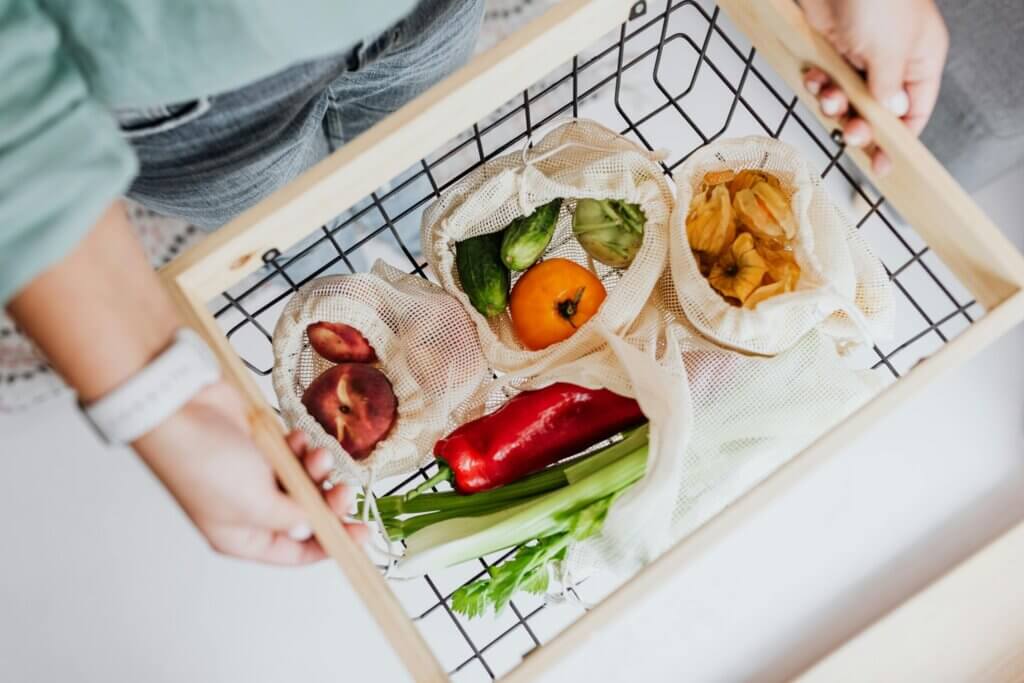
Instead of collecting more plastic, keep a set of cloth or net bags in your car or bag for grocery runs. They’re sturdier, washable, and last longer than their plastic counterparts. Mesh produce bags are especially handy for fruits and veggies without adding unnecessary packaging. Plus, many stores now reward customers for bringing their own bags. It’s a small switch that helps reduce single-use plastic waste.
Swap Plastic for Glass Storage
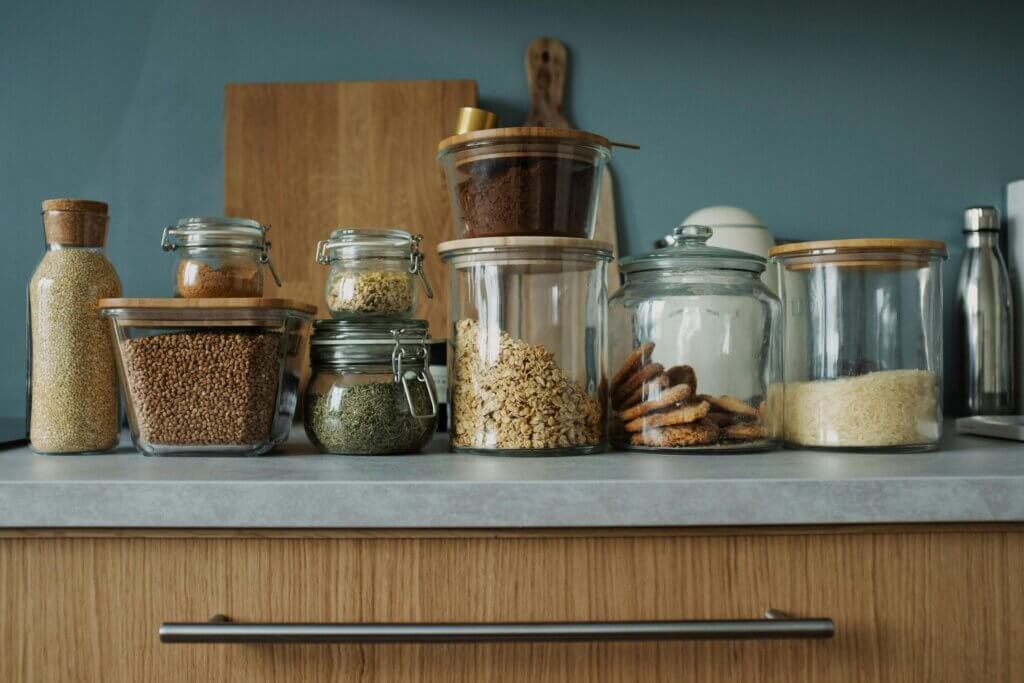
Glass containers are not only more sustainable but also more durable and versatile. Unlike plastic, they don’t stain, absorb odors, or warp over time. You can use them for leftovers, pantry storage, and even baking. Investing in a few quality pieces or repurposing jars from sauces or jams can go a long way in reducing plastic in your kitchen. And bonus: they just look better in your fridge and shelves.
Don’t Toss Scraps—Transform Them
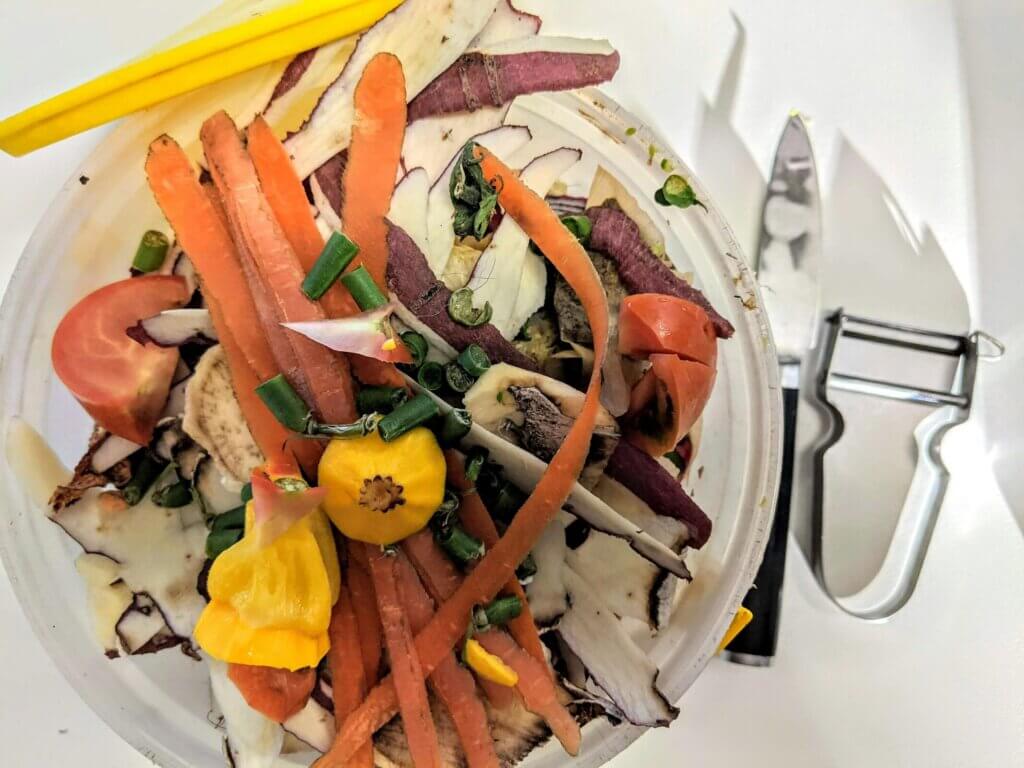
Your veggie scraps, citrus peels, and stale bread don’t have to go in the trash. Use leftover veggie ends to make homemade broth, turn citrus peels into natural cleaners or infuse them into vinegar, and toast stale bread into croutons. It’s about rethinking what we consider waste and giving ingredients a second life. You’ll be surprised at how much you can make from what you already have.
Take Inventory Before You Shop
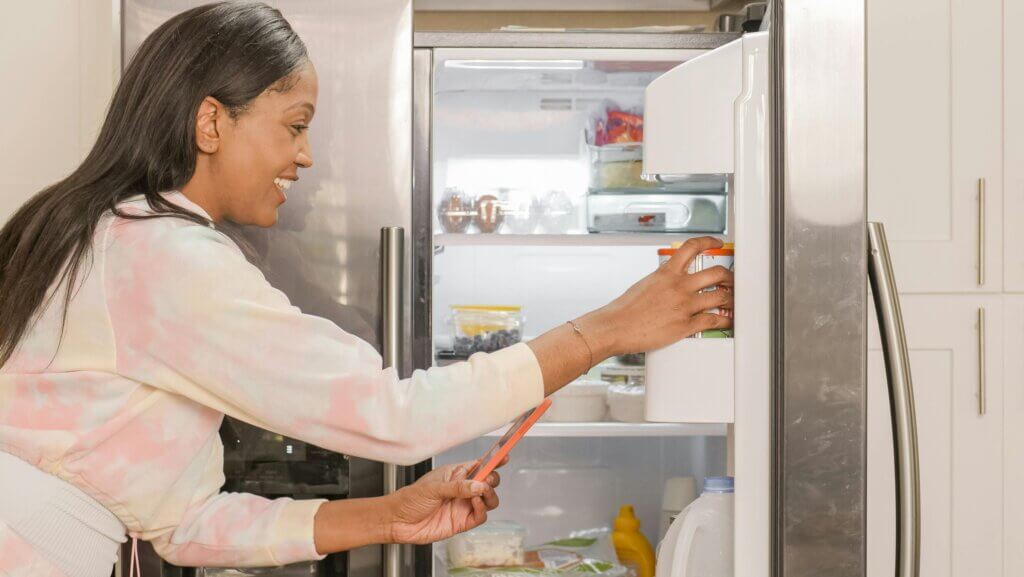
Get into the habit of checking your fridge, freezer, and pantry before making a grocery list. It’ll help prevent food spoilage and cut down on unnecessary purchases. Try organizing ingredients that need to be used up at the front of your fridge or designating a “use me soon” bin. This habit also makes it easier to decide what meals to cook with what you already have on hand. Less waste, less stress.
Store Produce the Right Way
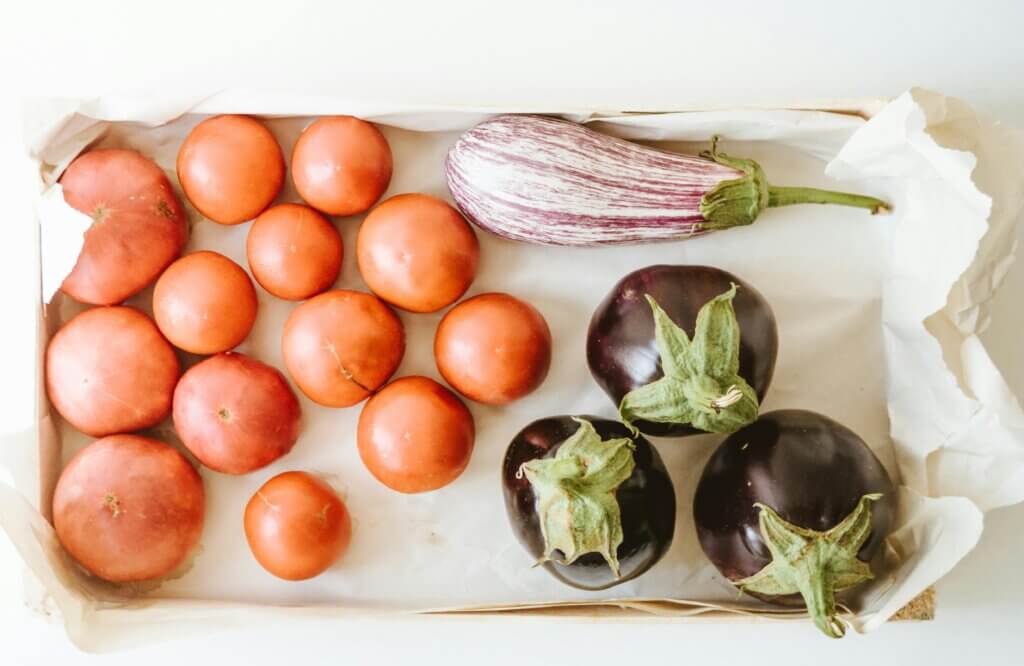
Storing your produce properly can extend its shelf life and reduce food waste. Leafy greens last longer with a damp paper towel, herbs can be stored like fresh flowers in water, and apples should be kept away from other fruits to prevent early ripening. Knowing a few basic tips can help you stretch your grocery haul much further. It’s a simple, practical shift that makes a big difference.
Use Natural, Low-Waste Cleaning Products

Ditch single-use cleaning wipes and plastic-heavy sprays for natural alternatives. A mix of vinegar, baking soda, and lemon can tackle most kitchen messes with ease. Not only are these ingredients effective and affordable, but they also come with far less packaging. You can even reuse spray bottles or store solutions in jars. Your kitchen stays clean—and so does your conscience.
Grow Herbs at Home
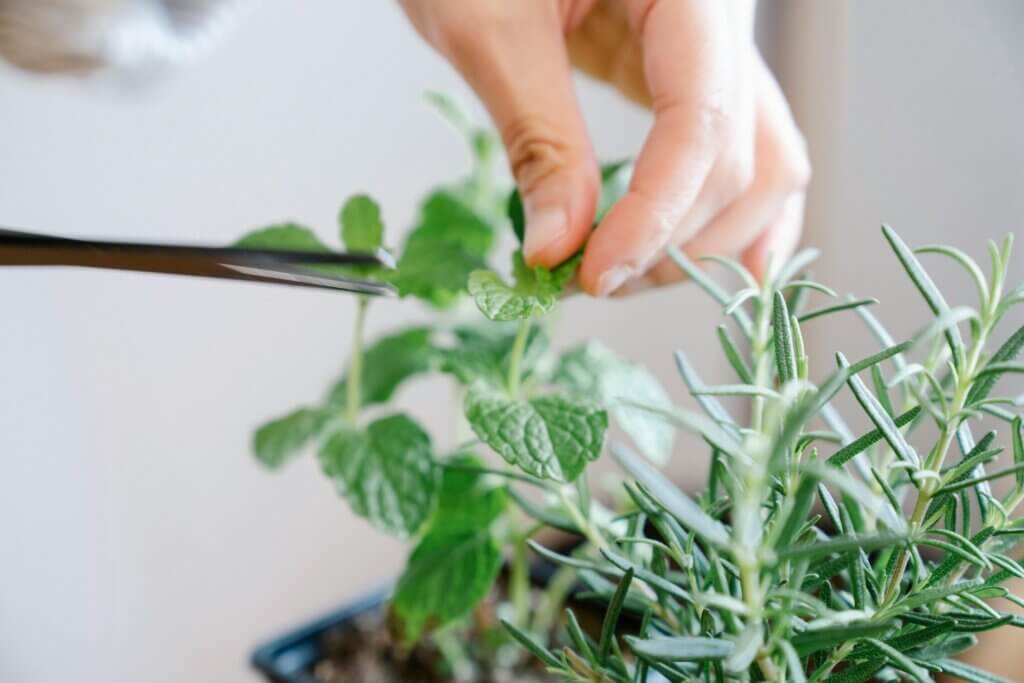
Herbs are one of the easiest plants to grow at home, even if you don’t have a garden. Whether it’s a sunny windowsill or a small balcony, a few pots of basil, mint, or chives can thrive with little care. You’ll reduce the need for plastic-packaged store-bought herbs, cut down food waste, and always have fresh flavors on hand. It’s a tiny step with tasty results.
Compost Food Scraps
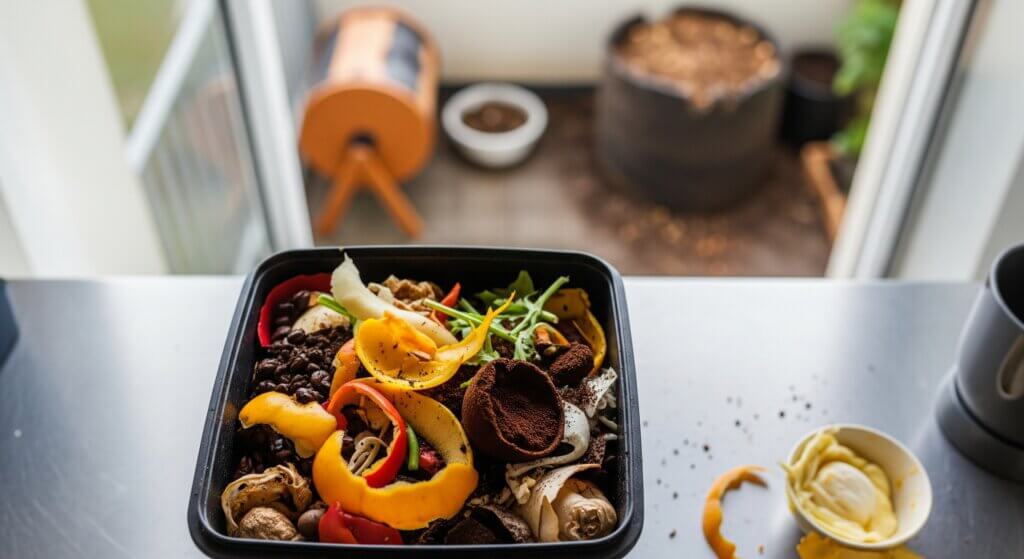
Instead of throwing food waste in the trash, consider composting it. Even if you live in an apartment, small indoor compost bins are available, and some communities offer drop-off programs. Composting turns organic waste into rich soil—perfect if you have a garden or know someone who does. It’s one of the most powerful ways to close the waste loop in your kitchen.
Buy in Bulk When Possible
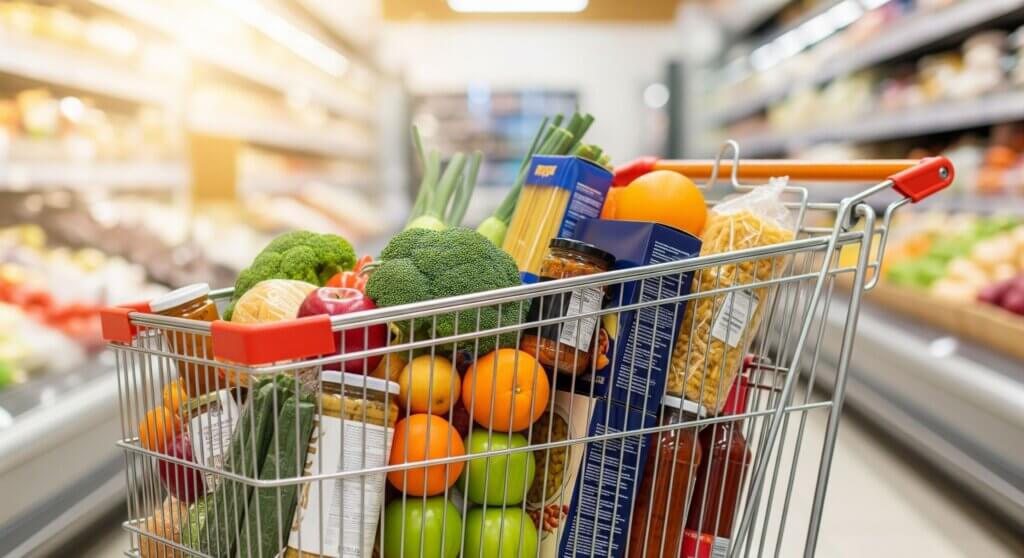
Buying in bulk cuts down on packaging and is often more affordable in the long run. Look for local refill stores or bulk sections in your grocery store where you can bring your own containers. Pantry staples like rice, oats, lentils, and nuts are perfect for bulk buying. Less packaging, fewer trips to the store, and more money saved—win-win.
Everyday Choices, Lasting Impact
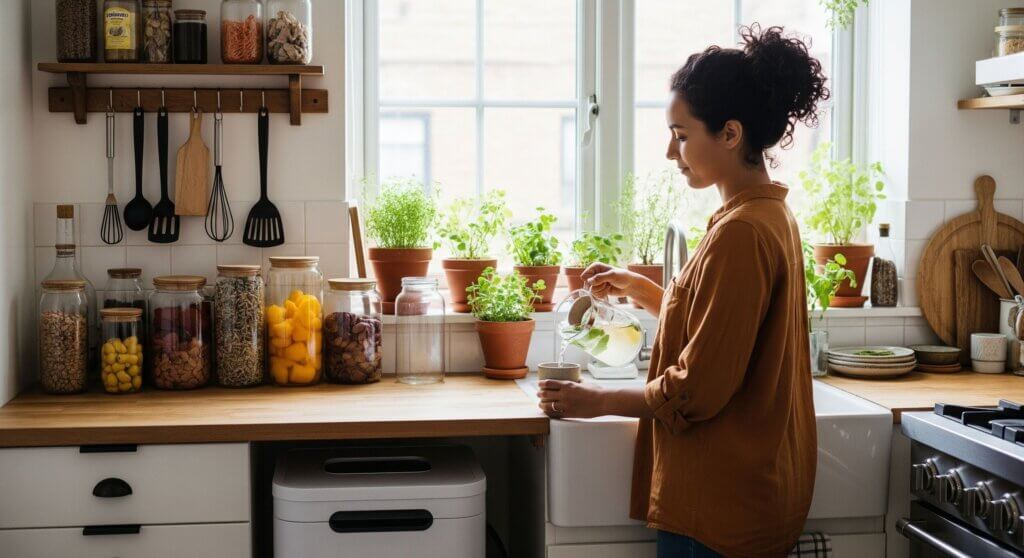
Making your kitchen more low-waste doesn’t require a massive lifestyle overhaul—it just takes a little intention and consistency. With a little intention and consistency, you can make a meaningful impact. By rethinking how we shop, store, clean, and cook, we can minimize waste and save money over time. These small adjustments may seem minor at first, but together they create a ripple effect of positive change. You’re not just making choices that benefit your wallet but also contributing to a healthier planet.

